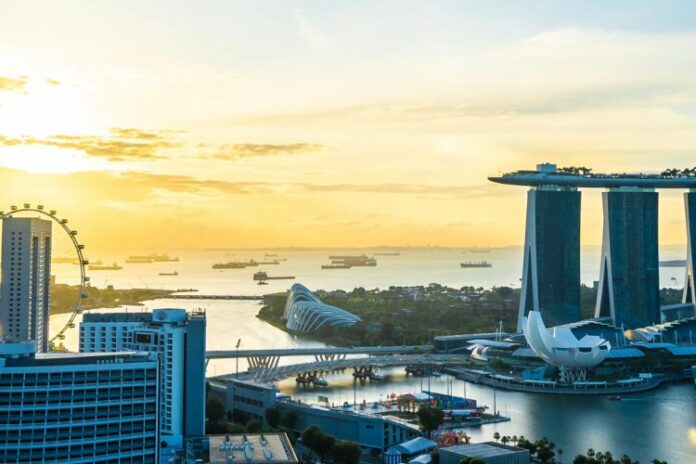The Ministry of Transport of the Republic of Singapore (MOT) and the Ministry of Land, Infrastructure, Transport and Tourism of Japan (MLIT) signed a memorandum of cooperation (MoC) to establish the Singapore – Japan Green and Digital Shipping Corridor on Friday (16 December), according to the Maritime and Port Authority of Singapore.
With the establishment of the Green and Digital Shipping Corridor, MPA and the Japanese port partners aim to embark on pilot projects and trials for alternative marine fuels such as ammonia and hydrogen. The two sides will also work together to develop the necessary bunkering infrastructure, standards and training. They will also encourage development and adoption of technologies to decarbonise port infrastructure.
Signed by Mr Chee Hong Tat, Acting Minister for Transport, and Mr Saito Tetsuo, Minister of Land, Infrastructure, Transport and Tourism, this MoC marks the first Green and Digital Shipping Corridor established between Singapore and Japan to develop standards and best practices supporting the decarbonisation, digitalisation and growth of the maritime industry.
Japan is one of Singapore’s top ten trading partners, and the trade volume between the two countries totalled SGD 65 billion (USD 48.8 billion) in 2022. Under the milestone collaboration, the Maritime and Port Authority of Singapore will work together with six Japanese ports – namely, the Port of Tokyo, Port of Yokohama and Port of Kawasaki supporting the Kanto Region, the Port of Osaka and the Port of Kobe supporting the Kansai Region and the Port of Nagoya supporting the Chubu Region.
These six Japanese ports are the key nodes for the major economic regions of Kanto, Kansai and Chubu. They handled a combined cargo total of about 57 million tonnes in 20201, representing a significant proportion of total cargo handled in Japan. They have also been respectively embarking on various initiatives under the MLIT’s overarching Carbon Neutral Port plan.
On the digitalisation front, Singapore and Japan will identify and implement digital solutions to streamline port clearance processes. Both sides will also exchange information and best practices on maritime cybersecurity risks as well as other aspects of maritime digitalisation.
The establishment of the Singapore – Japan Green and Digital Shipping Corridor reaffirms the strong commitment by Singapore and Japan to accelerate maritime decarbonisation and digitalisation. Looking forward, Singapore stands ready to work with like-minded stakeholders across the maritime and port ecosystems of Japan, towards advancing the sustainability and growth of the maritime industry.



